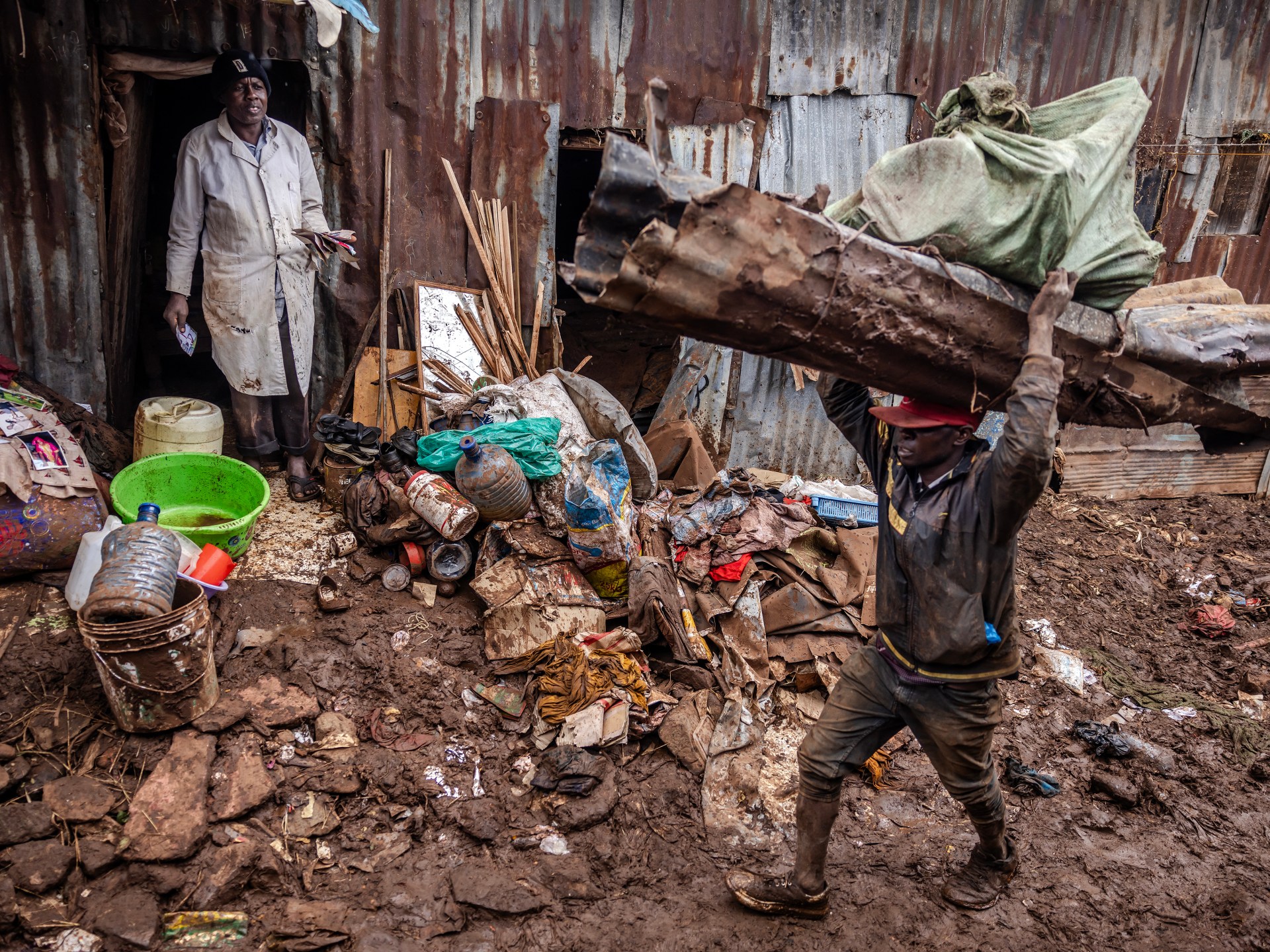More than 120,000 people have been displaced, Kenyan government says, with 22 others injured and eight reported missing.
Flooding and heavy rains in Kenya have killed at least 70 people since mid-March, according to a government spokesperson, twice as many as were reported earlier this week.
Kenya and other countries in East Africa — a region highly vulnerable to climate change — have been lashed by severe downpours in recent weeks.
“The official tally of fellow Kenyans who regrettably have lost their lives due to the flooding situation now stands at 70 lives,” government spokesperson Isaac Mwaura said on X on Friday, after torrential rains killed 32 people in the capital Nairobi this week.
Fifteen people were killed in the Rift Valley region, the government also said in a report on Friday, following a meeting of the country’s disaster response committee.
More than 120,000 people have been displaced by the floods, the report said, with 22 others injured and eight reported missing.
The government has proposed 3.3 billion Kenyan shillings ($24.5m) for an “initial emergency response”, which includes repairing infrastructure, emergency housing and food assistance.
Sixty-four public schools in Nairobi – nearly a third of the total number in the capital – have been “substantially affected” by the flooding, said Belio Kipsang, the principal secretary for education.
However, Deputy President Rigathi Gachagua said that “the schools will reopen as scheduled” following the mid-term holidays this month.
Kenyans have been warned to stay on alert, with more heavy rains forecast across the country in coming days as the monsoon batters East Africa.
The flooding has been compounded by the El Nino weather pattern.
A naturally occurring climate pattern typically associated with increased heat worldwide, El Nino can lead to drought in some parts of the world and heavy rains elsewhere.
Regional destruction
Meanwhile, at least 155 people have been killed in flooding and landslides in neighbouring Tanzania.
Tanzanian Prime Minister Kassim Majaliwa said on Thursday that more than 200,000 people had been affected by the disaster.
He said homes, property, crops, as well as infrastructure including roads, bridges, railways and schools, had been damaged or destroyed.
In Burundi, about 96,000 people have been displaced by months of relentless rains, the United Nations and the government said this month.
The UN’s humanitarian agency (OCHA) said in an update this week that in Somalia, the seasonal Gu rains from April to June are intensifying, with flash floods reported since April 19.
It said four people had been reportedly killed and more than 800 people were affected or displaced nationwide.
Uganda has also suffered heavy storms that have caused riverbanks to burst, with two fatalities confirmed and several hundred villagers displaced.
Late last year, more than 300 people died in torrential rains and floods in Kenya, Somalia and Ethiopia, just as the region was trying to recover from its worst drought in four decades that left millions of people hungry.
Check out our Latest News and Follow us at Facebook
Original Source

